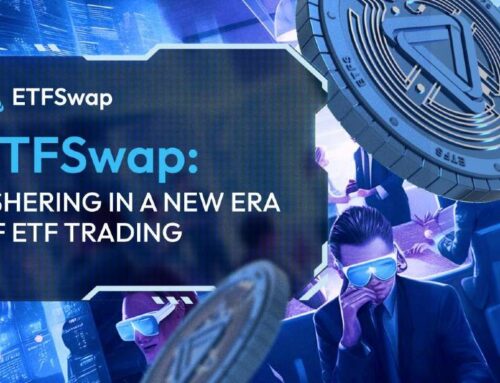ILPs – a tradable debt-based alternative to ICOs
With the regulatory landscape surrounding ICOs still uncertain in most jurisdictions, new fundraising models continue to emerge
In 2017, initial coin offerings (ICOs) were the most popular funding method for new cryptocurrency projects. The amount raised by blockchain startups through token sales surpassed that of venture capital investments by 3.5x times.
With many compliance issues still unresolved, however, a raft of variations on the ICO model continue to emerge.
What are ILPs?
Initial loan procurements (ILPs) are a new form of token-based funding where borrowers and creditors enter into a digital loan agreement through a smart contract. The interest that ‘creditors’ (i.e. investors) will earn is tied to the performance of the issuing company.
As these loans are tokenized and turned into Future Loan Access Tokens (FLAT) they can be traded in the secondary market to create liquidity and flexibility for investors. When a tokenized loan is sold, the new investor then enters into the loan agreement with the borrower.
Furthermore, Know-Your-Customer (KYC) checks are conducted on all borrowers and creditors to reduce the potential for fraud or money laundering and each loan agreement is digitally signed and recorded on the blockchain.
ILPs are, therefore, a secure debt-based alternative to the IPO-like initial coin offerings that have dominated the cryptocurrency funding market to date with the key difference being that investors invest in a company as opposed to a digital token.
The purpose of ILPs is to continue the growth of decentralized crowdfunding but with greater protection for investors without the need for government interference.
How ILPs can benefit startups and investors
Despite the popularity of initial coin offerings, they come with several limitations and risks for both issuing startups and their investors.
Firstly, in most jurisdictions, the legal stance is still unclear for ICO tokens. Currently, regulators around the world are mulling over whether to classify all ICO tokens as securities or whether, for example, utility tokens will remain unregulated as they are currently not considered securities.
Should regulators decide that all ICOs are security issuances then effectively all startups that have issued tokens in these jurisdictions will need to spend a substantial amount of their funds raised covering legal bills.
Secondly, the tax implications of issuing a digital token as well as investing in a digital token are still largely unclear and depend on the future definitions of ICO tokens. If they end up being classified as securities, then taxation will become an issue for both sides.
Thirdly, there is typically zero protection for investors when investing in an ICO. Startups who issue tokens (other than security tokens) do not have to provide investors with anything in return. Not even a claim on the company’s assets as is the case with equity tokens.
Instead, startup founders are effectively free to do as they please with the funds they have raised, which has created a scenario where reportedly half of ICOs have already failed as developers have made their money and no longer had much of an incentive to materialize their proclaimed visions for their blockchain projects.
Ripple CEO Brad Garlinghouse went as far last year as to claim that most ICOs are fraud. “I think a lot of what’s happening in the ICO market is actually fraud, and I think that will (eventually) stop,” he told CNBC then.
Finally, the high volatility of cryptographic assets makes it a challenging asset class to invest in for conservative retail investors as well as institutional investors who have clear investment guidelines to adhere to. That means that startups that are aiming to raise funds through an ICO may be leaving a lot of money on the table as a large share of potential investor money will not enter the market in its current state.
ILPs may help to alleviate some of the issues faced by “traditional” token sales as investor funds are secured through smart contracts, all parties are KYC’ed before the transaction, and the earnings potential is clearly defined by the loan agreement.
The BlockHive ILP
An early adopter of the initial loan procurement is Estonia-based blockchain incubator Blockhive. Instead of the issuance of a new digital token, Blockhive investors can enter into an ILP by purchasing FLAT tokens that will contractually entitle them to receive 20 percent of the company’s annual operating profit.
“When individuals receive FLAT tokens, they become potential creditors and can use the tokens to sign loan agreements with the borrower, in this case Blockhive. Once they have signed the loan agreement with Blockhive, they are now the new creditors of the loan agreement and they will get the interest payments,” Blockhive stated on its blog.
Blockhive’s ILP will be an interesting venture to follow. Should this new funding model succeed, it would not be a surprise to see more tokenized loan agreements emerge in the token economy of tomorrow.
With the regulatory landscape surrounding ICOs still uncertain in most jurisdictions, new fundraising models continue to emerge

Don’t miss out – Find out more today



